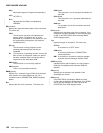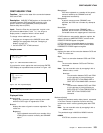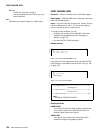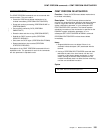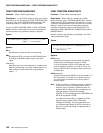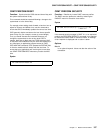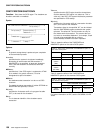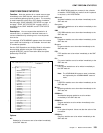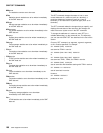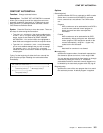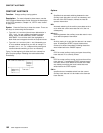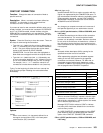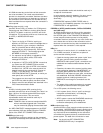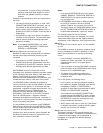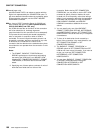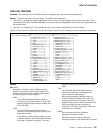
CEMT SET COMMANDS
RESetnow
The statistics counters are to be reset.
STAts
Statistics domain statistics are to be written immediately
to the SMF data set.
STOrage
Storage manager statistics are to be written immediately
to the SMF data set.
STReamname
Log stream statistics are to be written immediately to the
SMF data set.
SYsdump
System dump statistics are to be written immediately to
the SMF data set.
TAblemgr
Table manager statistics are to be written immediately to
the SMF data set.
| TCLass
Transaction class statistics are to be written immediately
to the SMF data set.
| TCPipservice
| TCP/IP service statistics are to be written immediately to
| the SMF data set.
TDqueue
Transient data statistics are to be written immediately to
the SMF data set.
TErminal
Terminal statistics are to be written immediately to the
SMF data set.
TRAnsaction
Transaction statistics are to be written immediately to the
SMF data set.
TRDump
Transaction dump statistics are to be written immediately
to the SMF data set.
TSqueue
Temporary storage statistics are to be written
immediately to the SMF data set.
Vtam
VTAM statistics are to be written immediately to the SMF
data set.
CEMT SET commands
The SET command changes the status of one or more
named instances of a resource (such as a terminal), a
particular subgroup of resources (such as a class of
terminals), or all resources of a particular type (such as all
terminals).
The SET command makes the changes that you specify, and
displays the new status of the resources. No changes are
made if there are syntax errors in the SET command.
To change the attributes of a resource, enter SET (or a
suitable abbreviation) on the command line. The keywords
you can use with CEMT SET are described in the rest of this
section.
On every SET command, an argument, a generic argument,
or ALL must be specified. For example:
SET TERMINAL(TRM1) INSERVICE
sets terminal TRM1 in service.
SET TERMINAL(TRM1 TRM2 TRM3) INSERVICE
or
SET TERMINAL(TRM1,TRM2,TRM3) INSERVICE
sets terminals TRM1, TRM2, and TRM3 in service.
SET TERMINAL(TRMᑍ) INSERVICE
sets all terminals with identifiers starting with TRM in service.
SET TERMINAL ALL INSERVICE
sets all terminals in service.
However,
SET TERMINAL INSERVICE
produces an error.
160 CICS Supplied Transactions



